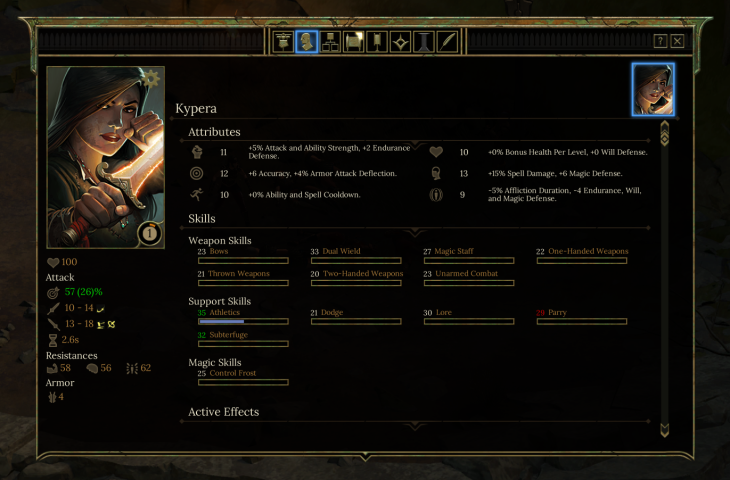- Joined
- Jan 28, 2011
- Messages
- 99,689















The fear in the half-naked barbarian chick's eye















I do? I'm seeing three different games with three different art styles (although not wildly different). Let's just agree to disagree since I'm not particularly in the mood for a 1oneyedking-inspired debate.You get the point.















Now that I see that Tranny screenshot though, I see they gave NPC's sitting and kneeling animations - I don't recall that being in PoE.




The fuck are you smoking, evil's been written about and dissected (and rationalized) since the time of ancient Greeks, and probably beyond.it's only after the events of WWII that we turned to it and tried to philosophically rationalize it



I wish writers would move beyond Good and Evil.
I see what you did there... Clever.I wish writers would move beyond Good and Evil.
I'm pretty sure the list of people who wanted avant-garde art from PoE is restricted to one guy ITT.
beyond Good and Evil.

There it is,I wish writers would move beyond Good and Evil.
















Dev Diary #2 – The Basic Game Systems
Hello again!
Last week I talked about the vision for Tyranny. For this week’s update, I want to talk about some core game systems – mainly skills, attributes, and character progression. We’ll go into more details about other game systems like combat and magic in the coming months.
Skills

One of the first decisions I made when I started designing systems for Tyranny was to make it a skill-based game. These are my favorite RPG systems to play, as they give players a lot of freedom and flexibility to make their own character. A lot of my favorite games – both pen and paper RPGs and computer games – are skill-based, and the first game I ever worked on was a skill-based RPG. Making this change felt a bit like coming home.
Skills in Tyranny are grouped into three broad categories: Weapons, Support, and Magic. Weapon skills determine how accurate your character is when wielding weapons of that type. Support skills determine how good you are at avoiding being hit in combat, as well as how nimble, sneaky, or knowledgeable your character is. Magic skills determine how precisely your character can draw various magical sigils and control the forces they evoke.
Skills increase as you use them, but there must be some challenge involved. You can’t fight characters who are far below your level to gain experience, or climb up and down the same wall over and over.
Attributes
Tyranny uses six core attributes to define characters. These are:
Attributes also determine the base values of skills. Each skill has a primary and a secondary attribute that contribute towards the skill’s rank. Primary attributes increase the skill by 1.5x the Attribute value, while secondary attributes increase the skill by 0.5x. The One-Handed Weapons skill, for example, uses Might as its primary and Finesse as its secondary. A character with 15 Might and 10 Finesse would have a base One-Handed Weapons skill of 28 ( 15 Might * 1.5 + 10 Finesse * 0.5 ).
- Might – your character’s physical strength and attack power.
- Finesse – your character’s physical precision.
- Quickness – your character’s speed and reaction times.
- Vitality – physical health and force of personality.
- Wits – intelligence and arcane potential.
- Resolve – ability to endure physical and mental challenges.
Attributes also contribute towards secondary statistics, such as the Endurance, Will, and Arcane resistances.
Progression
I wanted skills to increase as you use them, rather than spending skill points at level up. This meant a fundamental change to how character progression worked. In Eternity, characters gain experience as they complete quests and objectives. Individual combat encounters or conversations had no effect on level, unless they advanced a quest.
With the decision to increase skills by use, I needed skill gains to contribute towards character level. Otherwise you could theoretically have a character with a hundred ranks in a skill, but still technically considered ‘level 1’. So, in Tyranny as you use skills they gain experience. When they gain enough experience, they increase their skill rank. When a skill increases in rank, your character gains experience towards their next level.
A benefit of this is that it makes even optional combat encounters rewarding for the player. This change could have made conversations less rewarding, as players would need to fight in order to level up their characters. To resolve this, we added functionality to allow players to level up their skills in conversations. Player choices that are gated by skill requirements will add experience to those skills when they are used. Additionally, if you use a skill to intimidate an encounter into fleeing, we grant skill experience to the party equivalent to what you would gain if you fought them. It can’t be exact, as there are too many decisions that players can make during combat to replicate it exactly.
So, your characters gain experience as their skills increase in rank – whether it’s through combat, conversations, or interacting with objects in the world. You also gain some experience for completing quests and objectives, though it’s a smaller portion of your overall experience than it was in Eternity.
As your party members increase in level, they can improve their Attribute scores and purchase new Talents from Talent Trees. Your character has 6 distinct trees to purchase talents from, while your companions have their own unique trees.

Vitality – physical health and force of personality.







